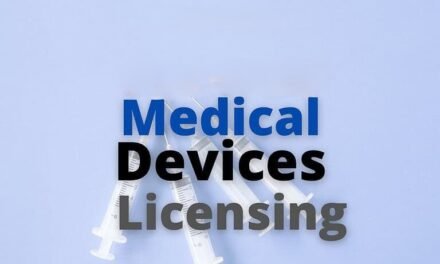
Henkel Instant adhesives for medical devices and their applications

Henkel Instant Adhesives (also known as cyanoacrylate adhesives) are widely used in the medical device industry for bonding a variety of materials, including plastics, metals, rubbers, and elastomers. Henkel, a global leader in adhesives, has developed advanced formulations of instant adhesives specifically tailored to meet the rigorous demands of medical device manufacturing, where high performance, safety, and reliability are paramount.
What Are Henkel Instant Adhesives:
Henkel’s instant adhesives are typically based on cyanoacrylate chemistry. These adhesives are known for their ability to bond rapidly and securely with minimal curing time. The primary features of Henkel’s instant adhesives are:
- Fast setting time (typically seconds to minutes).
- High bond strength, even on difficult-to-bond surfaces.
- Excellent adhesion to a wide range of materials including plastics, metals, glass, and rubbers.
- Low viscosity, allowing for precise application, especially in small areas.
Henkel offers different formulations of cyanoacrylate adhesives for medical device applications, including low and high-viscosity versions, sterilizable formulations, and biocompatible adhesives that meet medical standards.
Key Applications of Henkel Instant Adhesives in Medical Devices:
- Medical Device Assembly:
- Henkel instant adhesives are commonly used for assembling medical devices where fast and strong bonds are required. These adhesives are suitable for joining components such as plastic housings, electronic assemblies, and metal parts. The fast setting times help improve production speed and reduce processing costs.
- Example:
- Surgical Instruments: Bonding components of surgical tools, such as handles, blades, or sensors, where precision and quick curing are needed.
- Wound Closure:
- Instant adhesives have been used in skin closure applications. Henkel offers specialized cyanoacrylate formulations designed for wound closure that can be used as an alternative to stitches or staples. These adhesives offer a quick, painless, and effective way to close minor cuts and wounds, providing a reliable alternative for dermal bonding.
- Example:
- Dermabond™ is a Henkel product used in wound closure, offering a sterile, easy-to-use adhesive that bonds skin quickly and is less traumatic than traditional sutures.
- Catheter Bonding:
- Medical catheters often require strong adhesive bonds to ensure that different parts (such as tubes and connectors) are securely joined without the risk of leakage or breakage. Henkel instant adhesives are used for bonding catheter hubs, luer locks, and other catheter components. They provide reliable bonding without the need for heat or curing time.
- Example:
- Adhesives used in the bonding of IV catheters or blood sampling devices that need to be sterile and durable.
- Implants and Prosthetics:
- Henkel’s cyanoacrylate adhesives are also used in the assembly of implants and prosthetics, where strong bonds and biocompatibility are essential. Some Henkel adhesives have been formulated to meet the ISO 10993 standard for biocompatibility, ensuring that the adhesive materials do not cause adverse reactions in the body.
- Example:
- Adhesives used for bonding materials in dental implants, joint prosthetics, or spinal implants.
- Electronic Components in Medical Devices:
- Many medical devices incorporate electronic components that must be securely bonded to ensure functionality and durability. Instant adhesives are used for assembling small medical electronics (such as in pacemakers, diagnostic equipment, and monitors) where fast curing and precision are critical.
- Example:
- Bonding the sensors in electrocardiogram (ECG) monitors or pacemaker devices where quick curing time and reliable performance are critical.
- Packaging of Medical Devices:
- Instant adhesives can also be used in the packaging of medical devices, including the bonding of blister packs, plastic containers, and seal applications. These adhesives provide air-tight and moisture-proof seals to ensure product sterility and integrity during transport and storage.
- Bonding of Surgical Drapes and Tapes:
- Henkel instant adhesives are also used in the manufacture of surgical drapes, tapes, and adhesive bandages. These adhesives provide a secure bond between the layers of surgical drapes or between adhesive dressings and skin, ensuring that the materials remain securely in place during medical procedures.
- Bonding of Orthopedic Devices:
- Orthopedic devices like braces, splints, and casts require strong adhesive bonds to ensure the device stays in place during use. Henkel instant adhesives can be used to bond the different components of such devices.
- Example:
- Bonding splints or external fixators in orthopedic treatments.
Advantages of Henkel Instant Adhesives for Medical Devices:
- Fast Bonding Time:
- The rapid curing properties of Henkel’s instant adhesives allow for fast production cycles, making them ideal for high-throughput manufacturing environments where time is critical.
- Strong Bond Strength:
- These adhesives provide high tensile and shear strength, which is crucial for ensuring that medical devices remain intact and functional under stress and use.
- Precision and Control:
- With low viscosity and the ability to apply small amounts of adhesive precisely, Henkel’s instant adhesives allow for accurate bonding in delicate and intricate medical device parts.
- Biocompatibility:
- Henkel offers biocompatible adhesives that meet ISO 10993 standards, ensuring that the adhesives are safe for use in medical devices that come into contact with the body or biological tissues.
- Versatility:
- Henkel instant adhesives work on a wide range of materials commonly used in medical device manufacturing, including plastics, metals, elastomers, and rubbers, making them suitable for a variety of applications.
- No Need for Heat or Pressure:
- These adhesives do not require heat or external pressure to cure, which makes them suitable for bonding heat-sensitive materials in medical devices.
- Sterilizable Options:
- Some Henkel cyanoacrylate adhesives are formulated to be sterilizable, meaning they can withstand autoclaving, gamma radiation, or other sterilization methods without compromising their bond strength or performance.
- Non-Toxic:
- Henkel’s medical-grade adhesives are developed to be non-toxic once cured, which is important for ensuring patient safety when used in devices that come into contact with the body.
Challenges and Considerations:
- Bonding to Moisture-Rich Surfaces:
- Cyanoacrylate adhesives cure rapidly in the presence of moisture, but excess moisture can affect the adhesive’s strength or cause premature curing. Therefore, careful application is necessary, especially when bonding in environments with high humidity.
- Shelf Life and Storage:
- Instant adhesives are sensitive to air exposure and moisture, which can lead to polymerization or degradation. Proper storage in sealed containers and cool, dry environments is essential to maintain adhesive performance.
- Material Compatibility:
- While Henkel’s instant adhesives are versatile, certain materials (such as silicones or polytetrafluoroethylene (PTFE)) may require special formulations or surface treatment to achieve a strong bond.




























